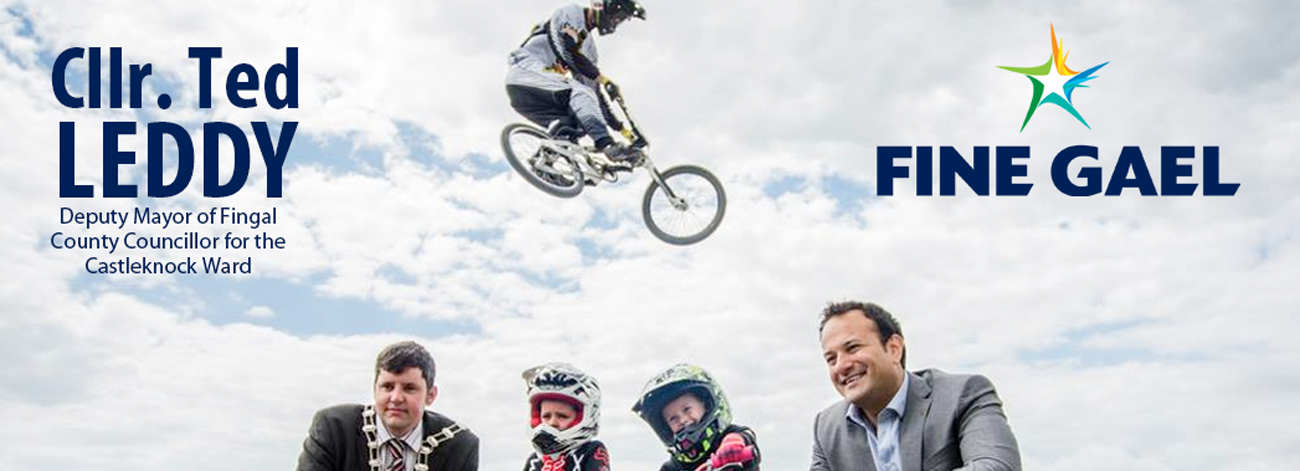All Parties have failed the 1916 ideals to some degree
It was a privilege to attend several events to commemorate the 99th anniversary of the 1916 Rising over the weekend. The commemoration in Rush by the Fingal Old IRA Commemoration Society was a brilliantly organised local event. And in Dublin RTE’s Road to the Rising attracted huge crowds on O’Connell Street. In both places the sense of pride that people have in our revolutionary routes was palpable. However there is no avoiding that the rising remains divisive and the debate surrounding its wisdom and meaning will continue to rage as the centenary draws closer. One of the main issues of contention will likely be the legacy of the Rising and which political party has best lived up to the ideals of the 1916 proclamation. Since the centenary coincides with a massively important election, it is inevitable that this issue will probably get more coverage than it deserves.
As a member of Fine Gael I would never claim that my party is the best inheritor of the 1916 proclamation. I think it is arrogant for any party to do so. However I am prepared to argue that we have honoured it in many ways. Our strong commitment to equality of opportunity and our action on marriage equality for LGBT is a demonstration of this. However I do concede that more needs to be done to live up to the ideals of that outstanding document, but as I said, no party can confidently claim to be its best guardian not Fianna Fail, not Labour and not Sinn Fein. In fact the case is very strong that the latter are and continue to be its worst violators.
First of all there is the obvious reference in the proclamation, not to dishonour the cause by “cowardice, inhumanity and rapine”. It is quite clear that these words were deliberately placed into the proclamation by the leadership, as a warning to their followers not to use the cause as a vessel for personal grudges and sectarian urges, both of which would become common traits of the Provisional IRA’s long war. But it is also clear that this is not the only text in the 1916 proclamation that does not sit well with Sinn Fein today. Gerry Adams loves to quote the 1916 proclamation particularly the line about equal rights. However I have noticed that when he quotes that line, he never actually finishes the quotation. Virtually all well-known Sinn Fein personalities do likewise. The full line reads, “The Republic guarantees religious and civil liberties, equal rights and equal opportunities to all its citizens”. My question is this, why does the Sinn Fein leader always leave out the piece about equality of opportunity when quoting that part of the proclamation? The answer is, because he doesn’t believe in it.
Equality of opportunity is a very specific concept that was placed into the proclamation by those who understood that in a free and democratic society some people work harder than others. Some have more ambition and initiative and this should be reflected in a fair society. The decision to include this phrase was heavily influenced by the American Revolution which called for same. In essence, the 1916 signatories believed in equality of opportunity but not necessarily equality of outcome. No matter how much Sinn Fein want it to be, the 1916 proclamation was not a Marxist document. Adams likes to accuse the government of being embarrassed by the Easter Rising and what it represents but it is clear on close examination, that there are some words in the proclamation that Sinn Fein would rather not read.
In my view Sinn Fein’s interpretation of the proclamation is self-serving and manipulative. Even more worrying, is their attempts to portray it as some kind of permanent revolution. At the recent Sinn Fein Ard Fheis Gerry Adams described Ireland’s post-independence history in the following terms:
The revolutionary period was followed by a counter revolution. That’s why Ireland is partitioned. Two conservative states with narrow minded, mean spirited, selfish elites, were created. Our people suffered, emigrated and died as a result.
Adams’s use of the phrase counter revolution is nothing short of chilling. But it is also very telling. He uttered this statement moments after welcoming the Cuban ambassador to the arena. I think we can safely infer from his words that Adams believes that the Cubans followed through with their revolution whereas the Irish did not. If he truly believes that the Cubans did it right and we did it wrong then no one is more disconnected from the proclamation than he. I cannot think of a political movement more diametrically opposite to the principles of the 1916 Rising than fifty years of one party communist rule such as that which is still ongoing in Cuba. And Adams can’t be unaware that in countries like Russia, China, Korea and Cuba, the “counter revolutionaries” were slaughtered by the millions.
His Ard Fheis statement is also completely lacking in objectivity in other ways. While the poverty and emigration that followed the early years of independence was tragic, it would have been highly irresponsible for the government of the day to peddle the line that independence meant wealth. This was Mugabe’s narrative, and when it didn’t work out he began seizing land and persecuting the “counter revolutionaries”. And as bad as emigration in Ireland was, it would have been much worse if we had become one of these countries that built up walls to keep people in.
It is clear that for today’s Sinn Fein leadership the 1916 Rising should have been part of a permanent revolution. That notion is neither Pearse, Clarke or Connolly. That is all Gerry Adams. Most of us, myself included believe that violence was necessary to achieve our independence, many in Sinn Fein seem to believe it is necessary to sustain it.
